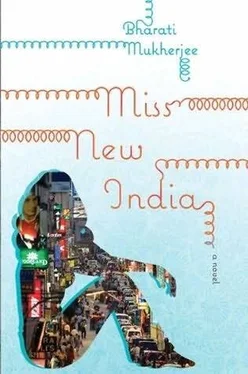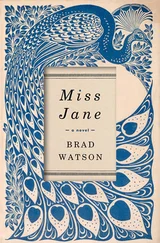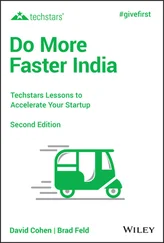"What husband, Baba?" Anjali protested, though she was pleased to have his blessing to attend the weekend classes. "You haven't even started looking, and you're worrying he'll be disabled or destitute!" This was as close as her father could come to admitting the horrible mistake he had made in hand-picking Sonali's husband. In the Bose family, a married woman forced by circumstances to hold a job to make ends meet was a tragedy. A divorced single mother supporting herself and her four-year-old daughter by working long days as an office typist was a catastrophe.
Mr. Bose went back to his nightly pegs of whiskey, ignoring her. Anjali toted up her assets and liabilities in the marriage market. Unlike Sonali, she was tall and slim, and under favorable light and clothing, pleasant looking-no, make that passably good looking. On the minus side, she lacked accomplishments such as singing, dancing, and sewing, traditionally expected of bridal candidates. She was also stubborn, headstrong, and impulsive, and by middle-class Gauripur standards, inappropriately outgoing. Those were correctible or at least concealable failures. The one flaw that couldn't be overcome was her eye color: greenish hazel. Her mother prayed for her pale eyes to turn black. Black hair, black eyes, fair complexion, sharp nose, and thin lips were unassailable proof of ethnic purity, whereas brownish hair and light eyes hinted at hanky-panky with a European in some long-ago time and place. Anjali reminded her mother that Sonali's long-lashed black eyes had fetched a lecherous cad who paid no child support and no alimony.
To marry her off was her father's Hindu duty: Anjali accepted that. Given her willful personality, he was eager to marry her off before she sullied her reputation and disgraced the whole family: she understood that too. She couldn't talk about her wants and fears with her parents, but she knew when to humor and when to defy them.
The matchmaking campaign began casually. Her father might come home from the office saying, "Took tea with Mr. Pradip Sen this afternoon. He's looking for someone for his son." Meaningful pause. "Anjali, you remember the Sens, no?" And she might drop what she was doing, which couldn't be much, since she was fairly useless in the kitchen, and say, "I trust you're not talking of Buck Tooth Sen. Good luck!" Little tests like that, easily deflected. And her father would shoot back, "Sen is good family. Everyone is remembering Mr. Pradip Sen's maternal grandmother's brother, just a boy, was hanged by damn Britishers on Andaman Islands." The formalities of matchmaking were conducted in English in the Bose household. Over breakfast Mr. Bose might linger on the page of marriage ads in the local Bangla paper, checking out the boys. "Promising lad, engineering, awaiting U.S. Green Card." The newspaper photo was reduced from a visa-size, visa-posed grainy black-and-white, rather insulting to her estimation of her prospects. She thought, They actually think this clerk-in-waiting is worthy of me? "Shall I drop this young chap a line?" her father would ask, and Anjali, feeling more like Angie, would reply, "You do that and I'm out the door, thank you very much." They sparred and chuckled. Their girl had self-respect, which the parents considered a good thing; she was also a little willful, which was not.
Angie wrote to Sonali that things at home were much as usual. Grumbling, threats, entreaties, criticism, and promises: the whole parent-unmarried daughter bag of tricks. Nothing she couldn't handle.
Sonali warned that matchmaking might start as a small cloud on the distant horizon, but before it was over, the marital monsoon would break, and no one in the world could hold the floodwaters back. Anjali secretly looked forward to its destructive fury.
THREE MONTHS LATER Anjali was still in Gauripur, making excuses to herself. The pre-monsoon summer was at its zenith. Nothing moved, all was heat and dust, but two thousand kilometers to the south, seasonal low pressure had been sighted. Low pressure meant monsoon. Monsoon meant mud, cooler weather, and a temporary reprieve from mosquitoes-and it meant that the next school year would soon be starting.
A sudden marriage, outside of her control, could certainly occur. Nonetheless, she felt it was only fair to her parents to let them test the marital waters. The possibility of going to Bangalore on her own would be a monumental life-destroying-or liberating-decision. She needed time to plan. She had saved the cash from occasional money orders Sonali had sent her over the years, but it probably wouldn't be enough for train fare. Hiding even the slim stack of bills from a family intolerant of privacy would be a challenge. Maybe she could stash it at the bottom of one of her mother's "just in case" metal drums in which was hoarded a six months' supply of rice, sugar, and lentils. "Just in case" was her mother's mantra. Disasters are waiting; they can't be avoided, and there's no one to trust. Everyone is corrupt, with twisted values. Even Anjali's father came in for scrutiny: "When bad times come again," she'd say as they chopped vegetables, "you think your father can save you? Hah! My father provided for my sisters and me. We never wanted, even in famine time. Five daughters all married, with decent dowry!"
" Buzley? " Did you understand?
" Buzlum. " Yes, I understood. This was Bose-family Bengali: an inside joke in an ancient dialect. But on this occasion it was meant to enforce. Do you understand what I am saying, and will you do as I say?
Buzley, buzlum.
The Boses were part of a remnant Bengali community inside a sea of Hindi-speaking Biharis. Angie's parents and three generations of once-prominent Boses had absorbed communal memories of riots and shop burnings, lootings, assassinations, and political scandal and had drawn a lesson from them. "These people…" her parents would complain, sometimes saying nothing more-"with these people, what to say?" These people could be anyone outside of their tight, dying, small-town "probasi" Bengali-Bihar community. Even other Bengalis-those exposed to the temptations of big-city Kolkata-were part of the plot against them. So was anyone not of their caste and general income level, or anyone with fewer than three generations of local roots, not to mention all minorities except maybe Parsis (not that any Parsi had ever stopped in Gauripur and stayed) and everyone from other regions.
"God, what I'd give for a little temptation!" Anjali used to say.
Even in Gauripur she had grown up on the modern side of a great national divide. From the backwater of Gauripur, she'd somehow caught the fever; she was part of the bold new India, an equal to anywhere, a land poised for takeoff. Her parents were irremediably alien, part of a suspicious, impoverished, humiliated India. How could they believe in the things they did and go through life hoarding food, denying themselves comforts, and delaying pleasure? How can you move ahead when all your energy is spent looking over your shoulder? They would never make progress; they were ill equipped for it. How cruel a fate, to be intelligent and ambitious and to crave her share of happiness-and to be denied the opportunity!
With her flawed Bangla language skills and no one to practice on except her parents, she'd always found herself attracted to Hindi movies, Hindi culture, and if it came down to it, Hindi-speaking boys. Bengali boys, like the ones in her ethnically isolated neighborhood, seemed too goody-goody, too cow-eyed. But given cultural patterns and long-nurtured prejudices, Mr. Bose would not consider non-Bengali applicants.
"No need to rush," Anjali would say. What if there was a perfect boy out there? Didn't she owe it to herself to give it a shot? She still had time to see if her father could find him, the Perfect Him, a Lord Ram with a trim mustache in modern dress. She doubted he could. His imagination was limited to boys who would grow into men like himself, boys in white shirts with secure prospects in a moribund bureaucracy. She'd be fair to her father. She'd give him another six months. If it looked hopeless, if he couldn't come through with a fancy catch, then she would definitely sneak out of the house, go to Peter, and wheedle a counterdowry out of him, and send a postcard from Bangalore. Peter had made out Bangalore to be an asylum for bright, driven women from hellhole towns. Gauripur was a hellhole, but she didn't know if she met Peter's high standard for brightness, or desperation.
Читать дальше












